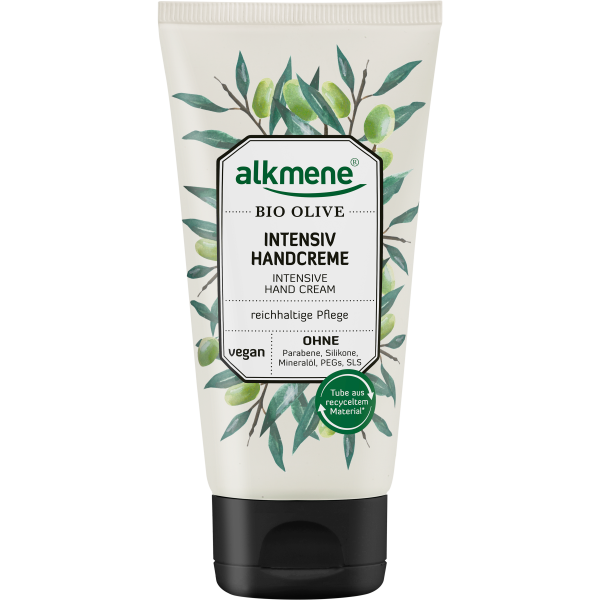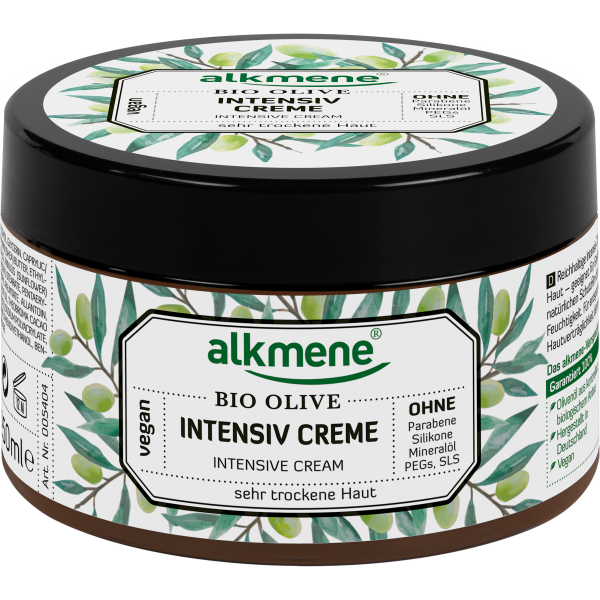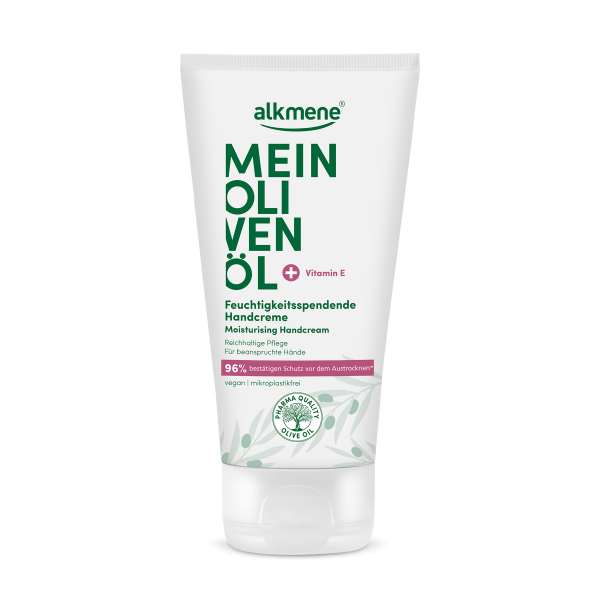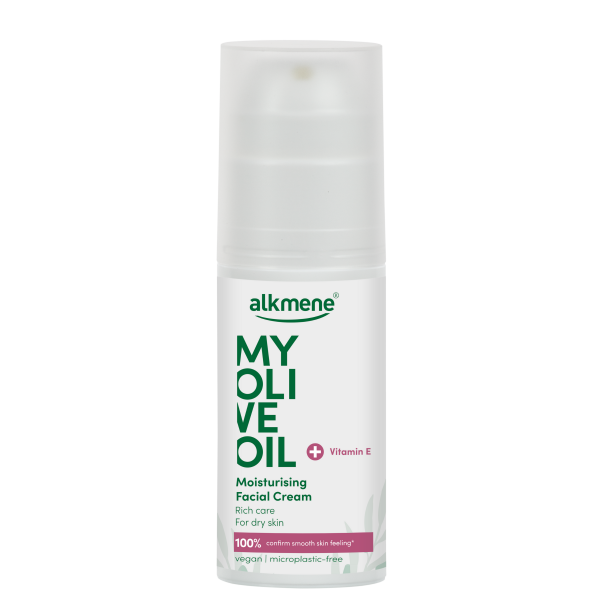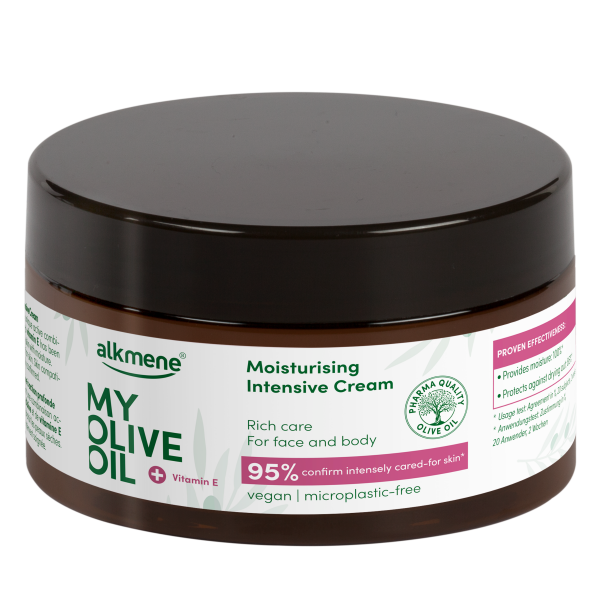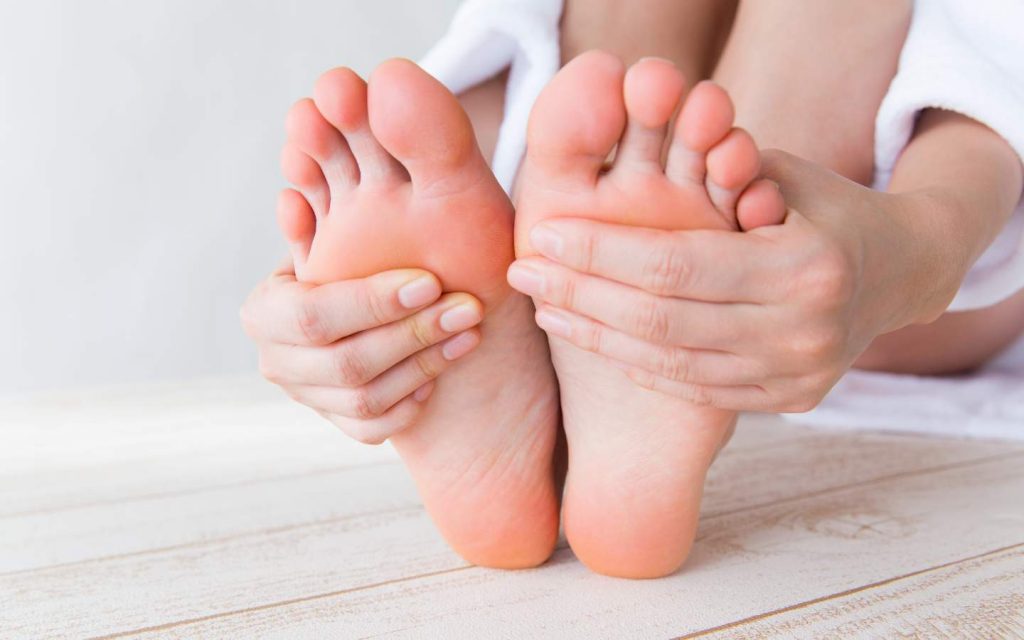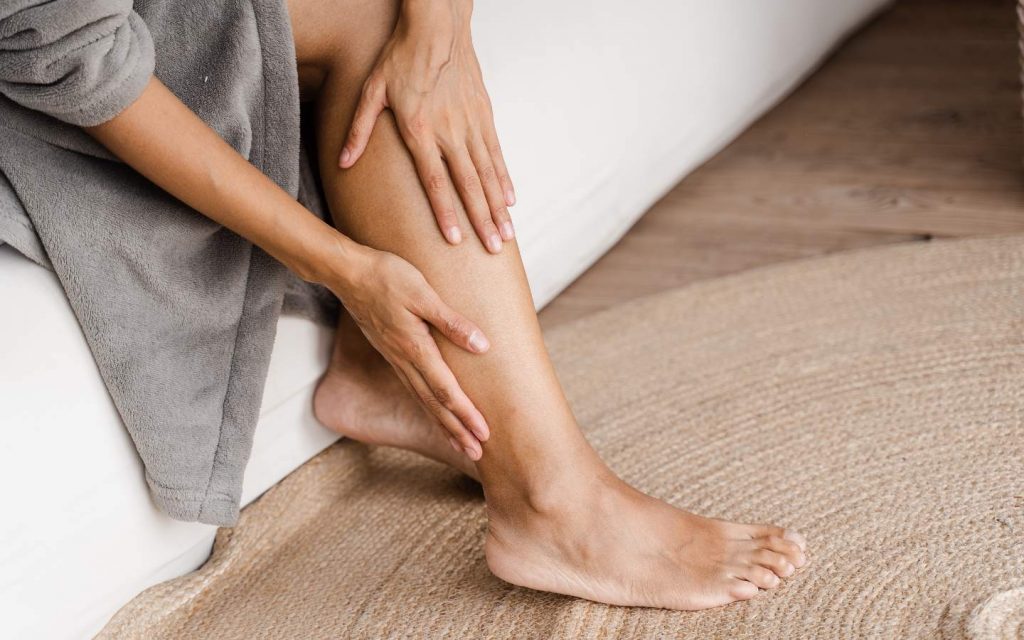
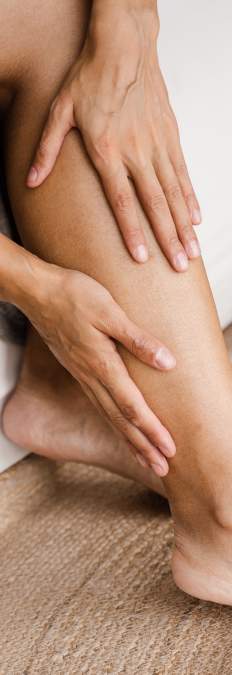
The skin tingles, the legs itch. Even if scratching is not the solution, it often seems to be the quickest remedy. However, it is crucial to know the cause of itching on the legs in order to get rid of it for good. If you know how the itching arises, you can usually alleviate it. We’ll tell you why your legs itch and what you can do about it!
Causes of itchy leg
Itching on the legs is a symptom. In order to alleviate these symptoms, you must therefore address the source and trigger of the itching. From quickly treatable causes to chronic skin diseases – itchy legs can be caused by a wide variety of things.
1. Allergies
Itchy legs can occur in connection with an allergic reaction. Certain substances, such as house mites, pollen or various foods, can cause itching on your legs.
2. diseases
Itchy legs can therefore be a symptom of skin diseases such as neurodermatitis, which leads to itching, redness and inflammation of the skin. In addition, diseases of the liver or kidneys can also lead to severe itching – although this is often not limited to the legs.
3. Infections
Infectious skin diseases such as athlete’s foot or ringworm can also lead to itchy legs. Fungal infections are usually easy to identify as they appear with a typical scaly rash.
4. Medications
Some medications can have itching (on the legs) as a side effect. If the itching occurs suddenly and at the same time as a new medication is taken, it is worth looking at the package leaflet to get to the bottom of the cause.
5. Dry skin
In most cases, however, the cause of itchy legs is very simple and easy to recognise: dry skin.

IMPORTANT: If your itching does not improve despite intensive care or if you suspect an illness, infection, allergy or medication as the trigger, it is advisable to consult a dermatologist.
Itching on the legs due to dry skin
Dryness on the legs can usually be recognised by the fact that the skin feels rough or flaky. There may even be fine lines or cracks.
Development of itching on the legs
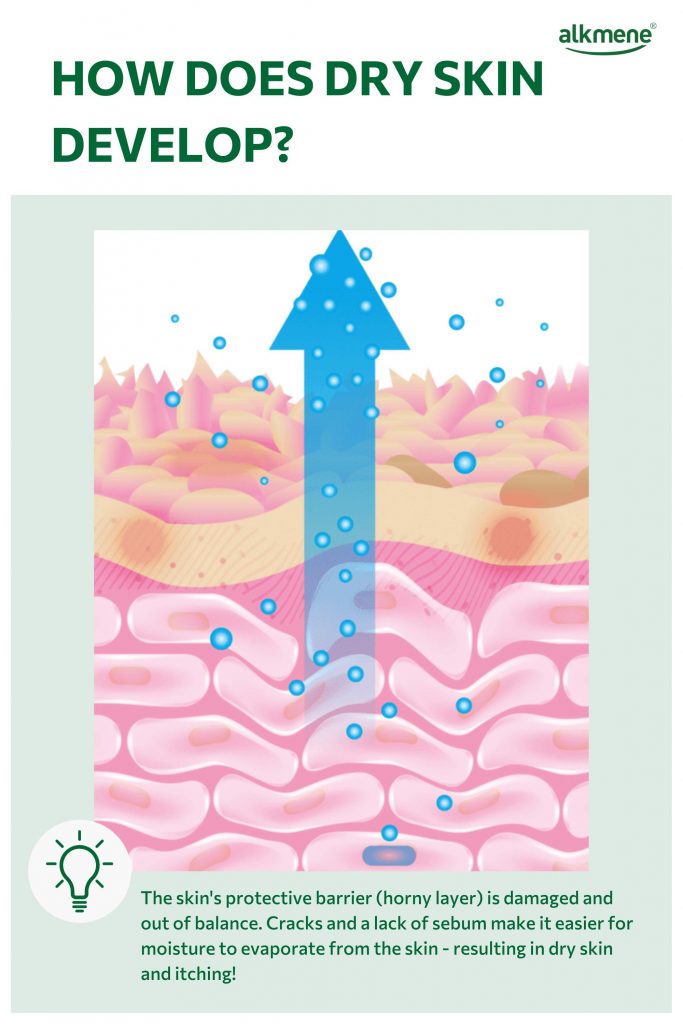
In connection with dryness, itching is always a sign that the moisture balance is out of balance and there is a lack of moisture. The outermost layer of the skin (horny layer), which forms a natural protective barrier, is weakened and no longer retains sufficient moisture in the skin. If the horny layer is brittle, the skin’s barrier function is disrupted and water can evaporate from the skin more easily. The itching on the legs is caused by an inflammatory reaction of the skin. The damaged skin barrier releases various messenger substances that irritate the nerve endings in the skin, causing itching.
Particularly frequently affected areas: Itchy shin
Itching often occurs on the legs, in places where the skin is particularly thin. Shins are an example of such areas. The occurrence of itchy shins is not uncommon, as dryness quickly becomes noticeable here. However, the skin on the ankles and knees is also often thin and prone to dry skin.
Itching on the lower legs and thighs can also be caused by dry skin. In this case, the reduced number of sebaceous glands plays a major role in the development of dryness and itching on the legs.
Itchy legs in the evening? Why it often occurs at night
Many people notice itching on their legs, especially in the evening. There can be various reasons for this. For one thing, most people are much less distracted in the evening than during the day. If you are lying in bed and trying to fall asleep, the itching of your legs may be more noticeable than when you are at work or out shopping, for example. Touching the duvet on the skin can also irritate the nerves in the legs and increase the itching.
Many people also shower in the evening before going to bed. Itchy legs or arms are a common phenomenon after showering. Showering with hot water and fat-dissolving shower gels weakens the skin’s protective barrier. The skin’s lipid layer is attacked, which means that more moisture can evaporate from the skin. This makes the skin feel dry and itchy.
What to do if your legs are very itchy
1. drink a lot
Drinking enough water is important to relieve itchy legs – the body should always be hydrated!
2. Avoid substances that promote dry skin
Substances such as nicotine and alcohol promote the development of dry skin and the associated itching – you should therefore refrain from consuming them.
3. Avoid aggressive cleansing
Soaps and shower gels that have a strong degreasing effect should be avoided in order not to put additional strain on the skin’s protective barrier in the event of dryness and itching.
4. Be careful when showering
Showering too often exposes your skin to stress, as the skin’s protective barrier and lipid layer are stressed – which can dry out the skin further as a result. Temperature also plays an important role when showering. The shower should not be too hot so that the skin is irritated as little as possible.
5. The right care
The right care for itchy legs is crucial to rebalance the skin’s protective barrier. Moisturising body lotions or creams can not only help to relieve itchy legs, but also reduce dryness. Our moisturising intensive cream for particularly stressed legs helps to reduce feelings of tension and itchiness on the legs and provide them with sufficient moisture thanks to ingredients such as organic olive and vitamin E.
6. Avoid stress
The skin is the body’s largest organ – so it’s hardly surprising that psychological stress can have a negative impact on the health and natural balance of our skin. If you want to say goodbye to itchy legs, you should therefore also consciously reduce your stress levels.

TIP: Body care is often neglected in our skincare routine. Why not include moisturising your legs in your evening routine? Our Moisturising Body Lotion is quickly absorbed – perfect in the evening. So you can go to bed freshly moisturised and prevent itchy legs in the evening!
